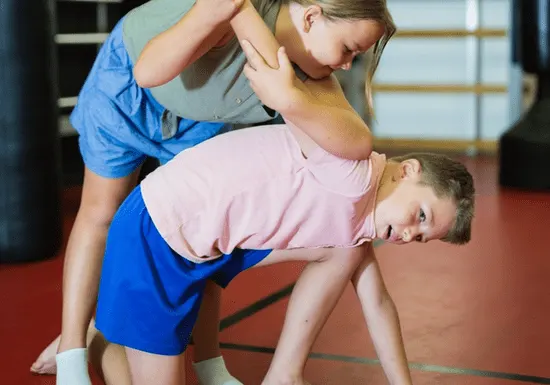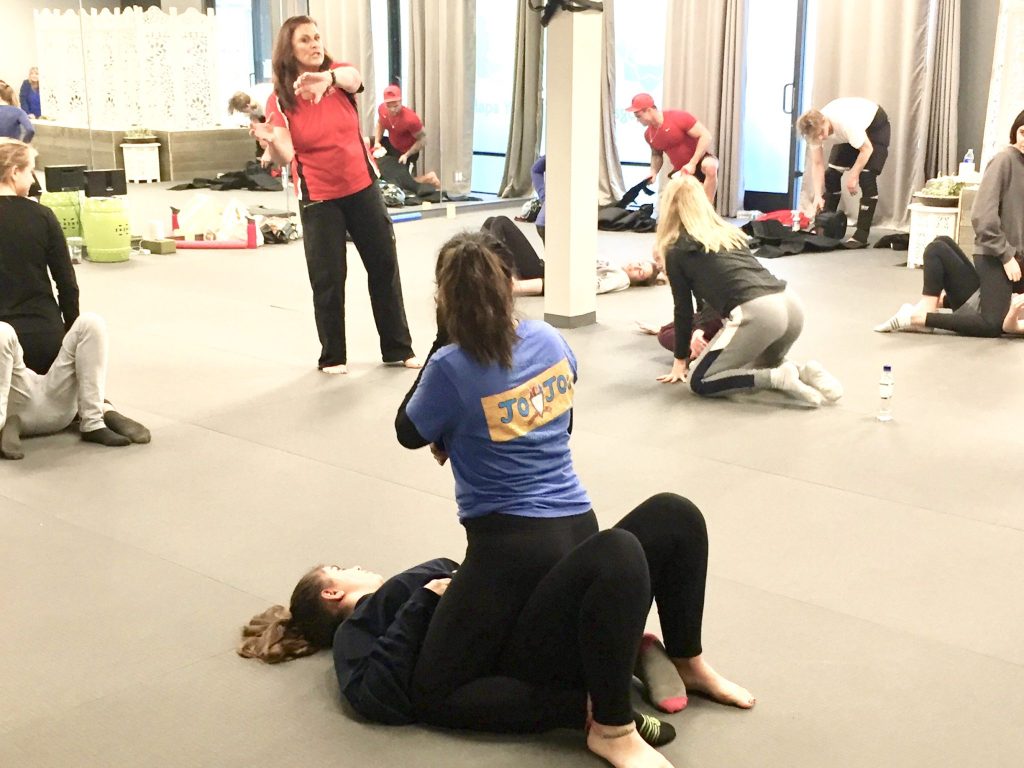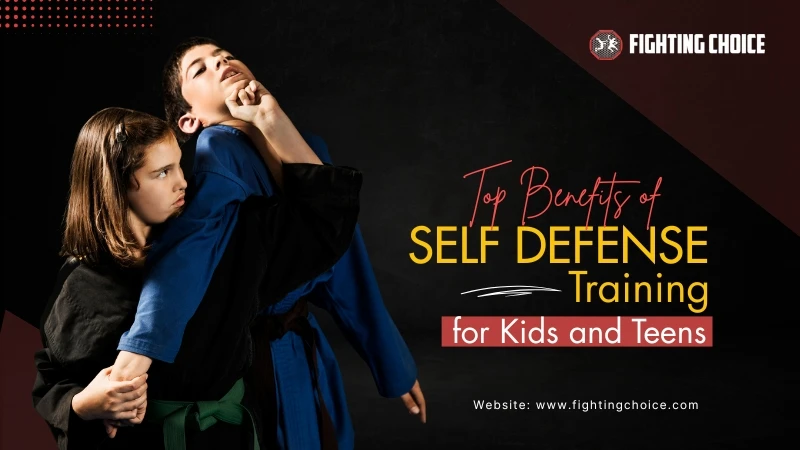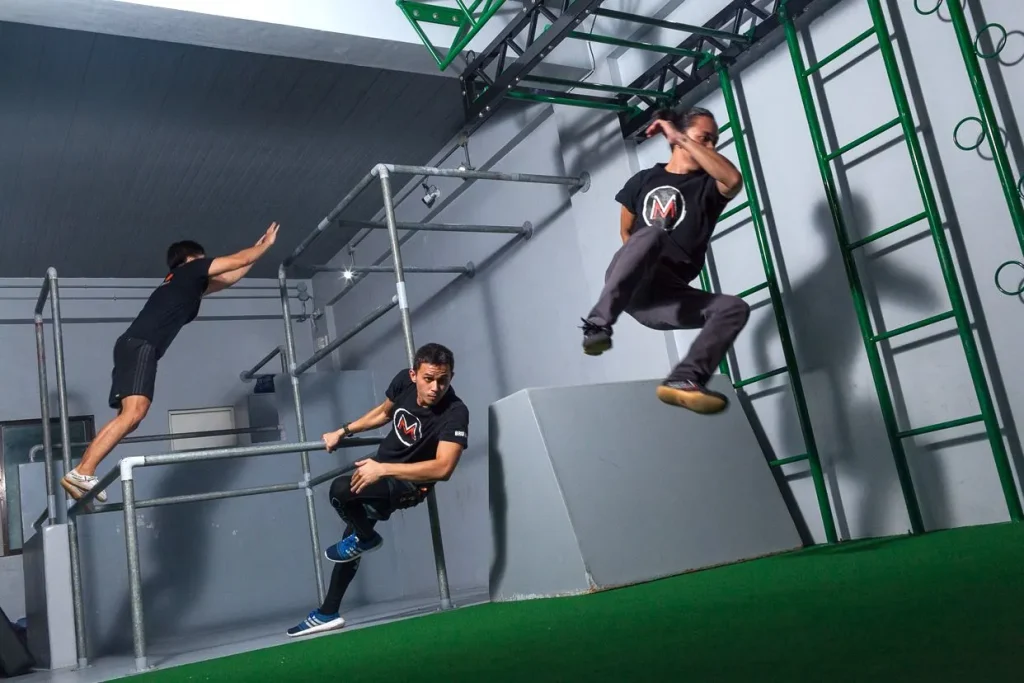Self Defense Training is not just about learning how to fight—it’s about building strength, focus, discipline, and confidence in young minds. Age-specific programs can help kids and teens become stronger—mentally, physically, and emotionally. Here’s how this training benefits both groups, explained in detail.
Understanding Self-Defense for Kids
Self-defense for kids is not just about learning how to block or escape from danger. It’s about helping children feel confident, safe, and prepared in everyday life. At a young age, kids face different types of challenges—bullying at school, peer pressure, or even unfamiliar situations when alone. That’s where self-defense training plays an important role.
The goal is to teach children how to recognize unsafe situations, react smartly, and protect themselves without using violence. They learn how to set boundaries, use their voice firmly, and stay calm under pressure. With consistent training, kids build not only physical strength but also emotional resilience and focus.
Self-defense classes also improve a child’s awareness of their surroundings. It teaches them when to take action and when to avoid conflict altogether. More than anything, it gives them the tools to feel confident in their own abilities and choices—skills that go beyond the classroom or training mat.

Benefits of Self Defense Training for Kids
Self-Defense Training is more than just physical movement for kids—it shapes their personality, builds confidence, and prepares them to handle challenges in everyday life. It helps children learn to protect themselves while growing emotionally and mentally strong.
1. Boosts Confidence Early
Children often feel unsure in unfamiliar places or around new people. With regular Self Defense Training, they learn how to carry themselves with confidence. Whether in school or public places, kids become more self-assured knowing they can handle tough situations.
2. Improves Focus and Discipline
Self defense is not about fighting—it’s about focus, control, and mental discipline. Kids are trained to follow instructions, respect their trainers, and stay dedicated to routines. This discipline often reflects in their studies and overall behavior.
3. Teaches Respect and Responsibility
Self Defense Classes emphasize values like respect for others and responsibility for one’s actions. At FightingChoice, kids are taught when and why to use these skills—not just how. This instills a sense of right and wrong from a young age.
4. Reduces Bullying
Many children face bullying at school. Self defense doesn’t encourage violence—it teaches kids how to avoid danger, seek help, and stand their ground if needed. Knowing they can defend themselves boosts their self-esteem and helps them deal with bullies confidently.
5. Enhances Physical Fitness
Training involves regular exercises that improve strength, balance, flexibility, and stamina. In a fun and interactive way, kids get used to being active, which builds healthy habits early in life.

Benefits of Self Defense Training for Teens
Teenagers face different challenges—from peer pressure to safety concerns. Self Defense Training empowers them both physically and mentally. Teen programs are designed to match their level of maturity and real-life situations.
1. Develops Self-Control and Emotional Strength
Teenagers often go through emotional ups and downs. Self Defense Classes help them channel their energy and frustrations in a controlled environment. They learn how to stay calm, assess situations, and act wisely.
2. Encourages Independence
As teens begin exploring the world on their own—college, travel, social events—knowing self defense gives them a sense of independence. They don’t have to rely on others for safety and can handle themselves in difficult situations.
3. Builds a Positive Self-Image
During teenage years, many struggle with confidence and body image. Self Defense helps them see their body as powerful and capable. With each session, their posture improves, mindset shifts, and self-respect grows.
4. Improves Reaction Time and Awareness
Teens learn to observe their surroundings, recognize risky situations, and react quickly. This kind of situational awareness is key to preventing threats or escaping danger in real life.
5. Prepares Them for Adult Life
The discipline, courage, and respect they learn in training apply well into adulthood. Whether it’s handling pressure, setting goals, or standing up for themselves, Self Defense Training gives them tools for a safer and more confident future.

Why FightingChoice Is the Right Place for Self Defense Training?
Whether you want your child to build discipline or your teen to gain confidence, FightingChoice offers age-appropriate Self Defense Training in a safe and supportive environment. Our trainers focus on real-life scenarios, personal development, and physical conditioning—without promoting violence.
We believe that learning to defend yourself is a life skill—not just a sport. With a mix of techniques from Karate, Kickboxing, MMA, and basic street-smart skills, we prepare kids and teens for real-world challenges.
Final Thoughts
Self Defense Training isn’t just about learning punches and kicks. It’s about shaping strong, aware, and confident individuals. For kids, it builds a strong foundation. For teens, it provides strength and clarity to navigate their growing world. And with the right training from FightingChoice, every young person can become mentally and physically strong—ready to take on life’s challenges safely and smartly.
Frequently Asked Questions (FAQs)
1. What is the right age for kids to start self-defense training?
Most children can begin basic self-defense training around age 5 to 6. At this stage, they can follow instructions and start learning simple movements. As they grow older, training can become more advanced.
2. Is self-defense training safe for children?
Yes, self-defense classes are designed with age-appropriate techniques that focus on safety. Kids are taught to avoid harm and use self-defense only when necessary.
3. How often should kids attend self-defense classes?
Ideally, 2 to 3 classes per week are enough to build skills and keep children engaged. Consistency is more important than frequency.
4. Can self-defense training help with bullying?
Absolutely. Self-defense training boosts confidence, body language, and awareness. It empowers children to handle bullying situations calmly and assertively.
5. Is self-defense only about fighting?
No, self-defense training is not just about fighting. It teaches kids to recognize danger, avoid risky situations, and protect themselves using non-violent methods first.
6. What’s the difference between martial arts and self-defense?
Martial arts often focus on forms, discipline, and competitive techniques. Self-defense training focuses more on real-life scenarios, awareness, and quick response to threats.
7. How does self-defense benefit teens emotionally?
Self-defense builds emotional strength by helping teens manage stress, stay calm in tough situations, and trust their own decisions. It also improves self-esteem and focus.





